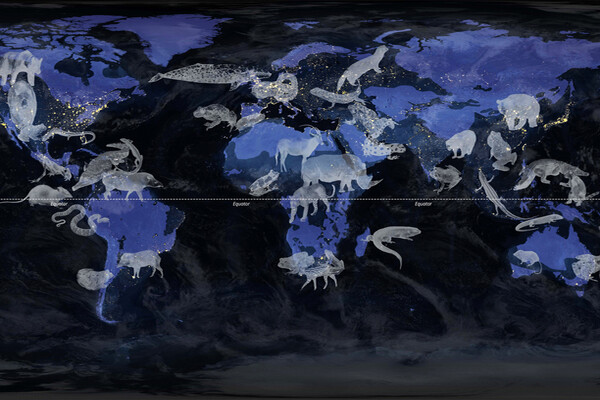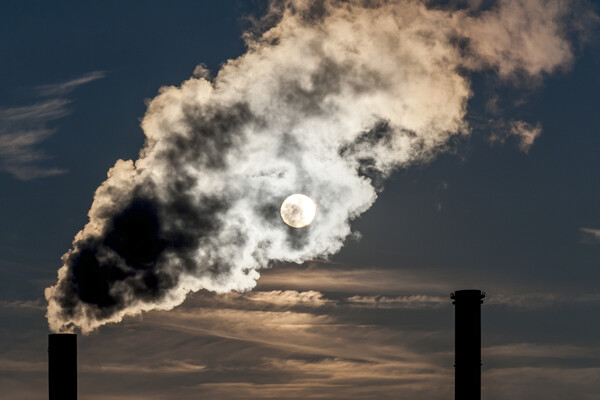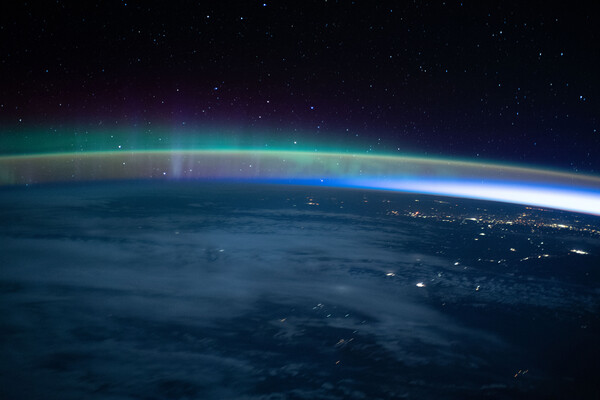5/18
Earth and Environmental Science
Understanding the Inflation Reduction Act
Penn experts explain the climate, health care, and economic aspects of the legislation that President Biden signed into law this week, plus the politics of getting it passed.
New analysis shows how sulfur clouds can form in Venus’ atmosphere
An international research team, including atmospheric chemists from the School of Arts & Sciences, used computational chemistry methods to identify a novel pathway for how sulfur particles can arise high in the atmosphere of the second planet from the sun.
Combating urban heat
Through the Penn Undergraduate Research Mentoring Program, rising junior Sarah Sterinbach has spent the summer learning about the policies Philadelphia has used to protect its citizens from extreme heat and how those efforts might improve in the future.
Student-led project takes a global view of the Green New Deal
The Green New Deal and its implications for the design professions have been areas of sustained focus for The Ian L. McHarg Center for Urbanism and Ecology at Weitzman since 2019.
Mentorship strategies to boost diversity in paleontology
Drawing on research as well as their experiences as women of color in paleontology, Aja Carter and Erynn Johnson, who earned doctoral degrees from Penn, coauthored a paper offering advice for making the field more inclusive.
Grappling with a watershed’s uncertain environmental future
Artists supported by the Penn Program in Environmental Humanities created tools for navigating unpredictable ecological challenges, then brought them to life in a series of public workshops at the Independence Seaport Museum.
The Supreme Court restricts the EPA’s power to curb climate change
Shelley Welton, a new faculty member with Penn Carey Law and the Kleinman Center for Energy Policy, calls the decision “devastating,” even if expected. She explains the ruling and its implications for action on climate change.
Penn junior Ha-Nam Yoon named a Udall Scholar
Ha-Nam Yoon, a junior in the College of Arts and Sciences, has been named a 2022 Udall Scholar by the Udall Foundation, recognized for leadership, public service, and a commitment to issues related to the environment.
A multidisciplinary approach to considering the Earth’s changing systems
Bringing expertise from each of their disciplines, the School of Arts & Sciences’ Kathleen Morrison and Joseph Francisco and the Environmental Innovations Initiative’s Melissa Brown Goodall infused chemistry, anthropology, policy, and more into an introductory course on climate and the environment.
In the Galápagos, training community scientists to monitor water quality
Both dense human populations and a plethora of wildlife can pose a challenge to marine and public health in the Galápagos Islands. With portable, user-friendly PCR technology, Penn faculty and students are training local scientists and school children to perform water quality research.
In the News
The world’s oceans just broke an important climate change record
Michael Mann of the School of Arts & Sciences says that the warming of the oceans is helping to destabilize ice shelves and fuel more powerful hurricanes and tropical cyclones.
FULL STORY →
Forecast group predicts busiest hurricane season on record with 33 storms
A research team led by Michael Mann of the School of Arts & Sciences is predicting the upcoming Atlantic hurricane season will produce the most named storms on record, fueled by exceptionally warm ocean waters and an expected shift from El Niño to La Niña.
FULL STORY →
Satellite images capture extraordinary flooding in the United Arab Emirates
Michael Mann of the School of Arts & Sciences explains how three low-pressure systems formed a train of storms that battered the United Arab Emirates.
FULL STORY →
My Climate Story: Philly students take science from abstract to personal
The “My Climate Story” project at the Environmental Humanities Department helps students and teachers learn about climate change’s impact in everyday backyards, with remarks from Bethany Wiggin. The idea is credited to María Villarreal, a College of Arts and Sciences second-year from Tampico, Mexico.
FULL STORY →
Here’s why experts don’t think cloud seeding played a role in Dubai’s downpour
Michael Mann of the School of Arts & Sciences says that many people blaming cloud seeding for Dubai storms are climate change deniers trying to divert attention from what’s really happening.
FULL STORY →
“Record-shattering” heat wave in Antarctica — yep, climate change is the culprit
Michael Mann of the School of Arts & Sciences says that persistent summer weather extremes like heat waves are becoming more common as people continue to warm the planet with carbon pollution.
FULL STORY →












